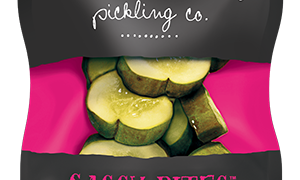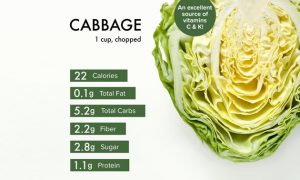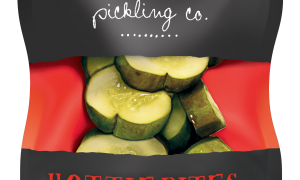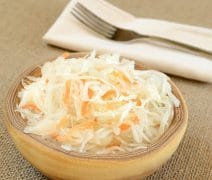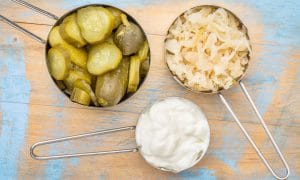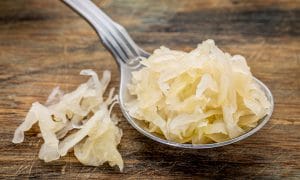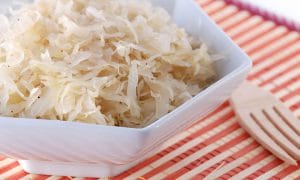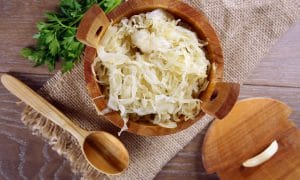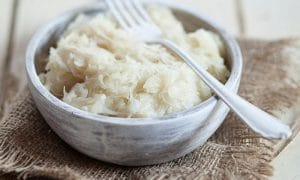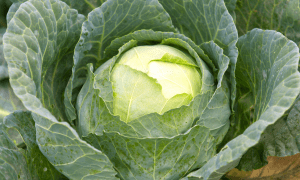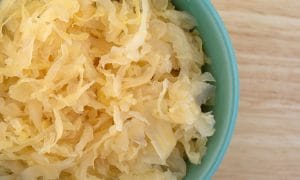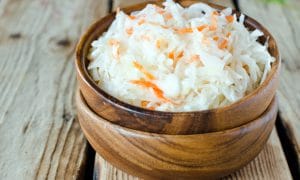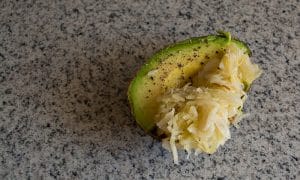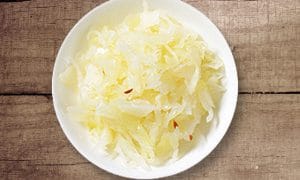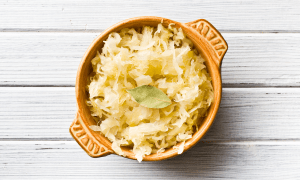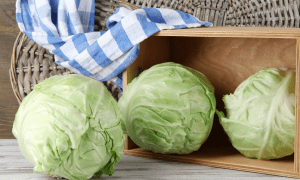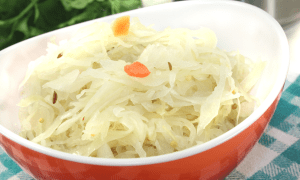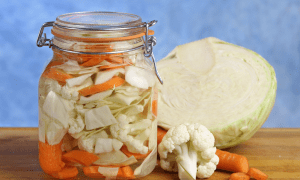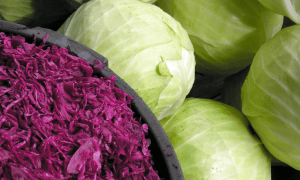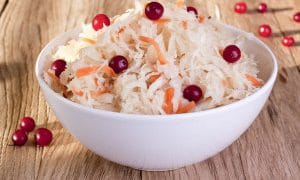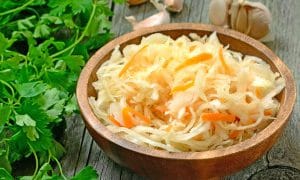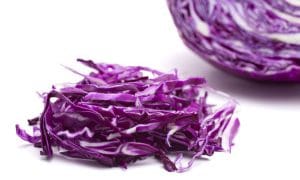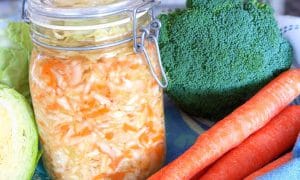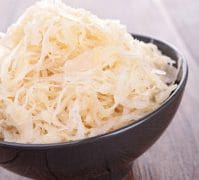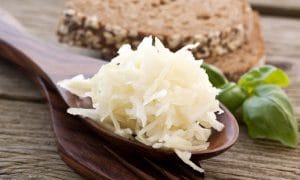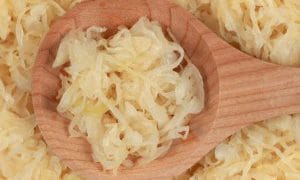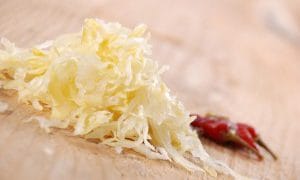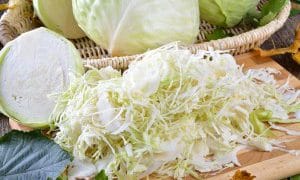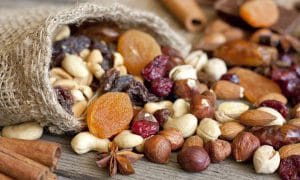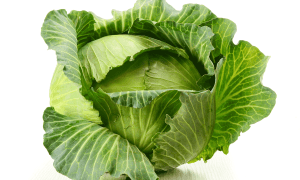Let's Connect
To share a recent experience with one of our products, please click here. If you have other questions, comments, or ideas that you would like to share, please let us know by completing the short form below. Keep checking back — we are always up to something new!
Let's Connect!

Newsroom
Stay connected to innovative products and the people who make them.
Sauerkraut Health Benefits That Will Surprise You
Mar 17, 2020 02:22 AM
By Medical Daily
Cabbage is a popular vegetable that comes in varying guises, and one of these is in the form of a popular side dish known as sauerkraut.
Contrary to popular belief, sauerkraut is not German in origin, although it is a staple of Eastern European cuisine that comes in varying names. In fact, it was imported from China over 2,000 years ago. Back then, fermentation was one method used to keep food from spoiling quickly. The fermentation process causes it to offer varying nutrition and health benefits not normally present in fresh cabbage.
This article enumerates the health benefits of sauerkraut that will surprise you.
Rich In Nutrients
Sauerkraut contains many nutrients needed to keep you healthy.
Having zero fat and with 27 calories, one cup contains 6 grams of carbohydrates, 4 grams of fiber and 1 gram of protein. Sauerkraut is also packed with a number of essential minerals, which include vitamins B6, C and K1, along with potassium, iron, folate and manganese.
Sauerkraut’s nutritious nature is owed mainly to the process of fermentation, when microorganisms on the cabbage digest its natural sugars before converting them into carbon dioxide and organic acids. This creates conditions that promote the growth of beneficial probiotics, which are present in yogurt and kefir.
Aside from providing a gamut of health benefits, probiotics make food more digestible, increasing your gut’s ability to absorb the vitamins and minerals they contain.
It must be noted that unlike cabbage, sauerkraut contains a high amount of sodium, so it should be eaten in moderation if you are conscious of your salt intake.
Aids In Digestion
100 trillion microorganisms, also called “gut flora,” are present in your gut, which is prone to being disturbed by use of diarrhea-causing antibiotics.
Unpasteurized sauerkraut not just serves as a first line of defense against toxins and harmful bacteria, but improves your digestion and overall health as well.
Probiotics like those in sauerkraut can improve the bacterial balance in your gut when it is disturbed by antibiotic use, reducing or preventing diarrhea. They are shown by research to also help in reducing gas, bloating and symptoms linked to Crohn’s disease and ulcer.
Since there are different varieties of probiotic strains that provide varying advantages, it is best to consume a wide variety of strains to enjoy a broader range of health benefits, and sauerkraut possesses those in spades. In fact, research has found that sauerkraut contains up to 28 distinct strains.
Like most fermented foods, sauerkraut contains various enzymes that help your body absorb nutrients easily.
Boosts Immunity
The bacteria in your gut can affect your immune system, and the probiotics and nutrients found in sauerkraut can help improve bacteria balance in your gut, strengthening your gut lining and preventing gut leakage.
A healthy gut flora prevents the growth of “bad” bacteria and may even boost the production of natural antibodies.
Regular consumption of probiotic foods can reduce your risk of developing infections such as the common cold and urinary tract infections, and may help you recover faster if you do get sick.
Sauerkraut is also rich in immunity-boosting vitamin C and iron. Vitamin C, in particular, may help you get rid of common cold symptoms faster if you amp up its intake.
Helps You Lose Weight
Like most vegetables, sauerkraut is low in calories and high in fiber, helping you keep yourself fuller for a long period of time and reduce your daily calorie intake.
Its probiotic content can also trim your waistline. Although the exact reasons are not yet fully understood, scientists believe that certain probiotic types can reduce the amount of fat absorbed by your body as a result of your diet.
Reduces Stress, Maintains Brain Health
Your mood may affect what you eat, but the opposite is also true. What you eat can affect your mood and brain health.
More accurately, an increasing number of studies have discovered an intimate link between your gut and brain. These studies found that the type of bacteria found in your gut can communicate with your brain, influencing its function and perception.
A healthy gut flora is found by research to help reduce stress and promote brain health, and its creation is further boosted by fermented probiotic foods such as sauerkraut.
In addition, sauerkraut helps maintain brain health by increasing your gut’s absorption of mood-regulating minerals such as magnesium and zinc.
Reduces Cancer Risk
Sauerkraut contains antioxidants and other plant compounds that reduce the risk of certain cancers. These, researchers believe, may help reduce DNA damage, prevent cell mutations, block excess cell growth that typically leads to tumors.
As a result of the fermentation process, sauerkraut has important plant compounds which suppress the growth of precancerous cells.
May Promote Heart Health
Sauerkraut contains fiber and probiotics, both of which may help lower cholesterol levels therefore lowering blood pressure, and thus promote heart health.
Sauerkraut is one of the rare plant sources of vitamin K2, which prevents calcium from accumulating in the arteries, thus reducing the risk of heart disease.
Strengthens Bones
Sauerkraut contains vitamin K2, a nutrient that is crucial to bone health and strength. More accurately, this vitamin activates two proteins that bind to calcium, the main mineral found in bones.
Category: Industry News
Other Press Releases

In 2014, GLK Foods transitioned to a high speed, automated cabbage shredding and sorting process using state-of-the-art laser & optics.
To share a recent experience with one of our products, please click here.
GLK Sauerkraut, LLC | 4600 American Pkwy, Suite 300, Madison, WI 53718 | Copyright © 2025 GLK Sauerkraut, LLC. All rights reserved | PRIVACY POLICY | TERMS OF USE



